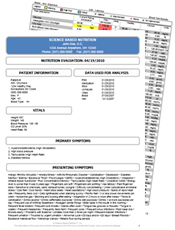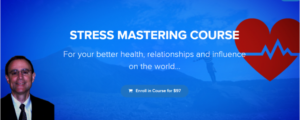There are hundreds of detox diets and programs out there that promise the consumer quick fixes for weight loss, improved energy, better digestion, and other reasons. For many of these people, they may have been indulging in an unhealthy lifestyle for too long and want a fast way to reverse it.
If you have been wondering if a detox is something that you should do, this may actually be the worst time for it because it is a sign that the body is in a weaker state and needs nutrient support. The body naturally detoxifies itself every day through the liver, the colon, kidneys, skin, and the lymphatic system. If, for example, the liver is already sick, and you do an extreme cleanse, you may end up with serious side effects or even a hospital visit.

Avoid crash diets for weight loss
Aggressive detox diets promoted by some celebrities like the Master Cleanse, which is basically a 10 day starvation diet where you only drink a lemon juice concoction and take a laxative, can be extremely harmful to the body. Cardiologist Isadore Rosenfeld specifically singles out the Master Cleanse Diet as an example of a detox diet that can damage your heart. “A crash diet once won’t hurt your heart. But crash dieting repeatedly increases the risk of heart attack.”1 Nutrition professor Linda Bacon states that such calorie restrictive diets can lead to heart muscle loss and damaged blood vessels. “All that shrinking and growing causes micro tears that create a setup for atherosclerosis and other types of heart disease.1” Shortages of potassium, magnesium, and copper have been suggested as possible causes of the arrhythmias seen in crash dieters, and studies have also found that the diets can cause a drop in blood pressure and sodium depletion.1
If you restrict calories for a longer period of time your body may eventually switch over to breaking down muscle for energy in which can actually slow your metabolism. This is why skipping meals is not a good idea. Some people might say that headaches are a sign of detoxing but in most cases it’s probably because you are hungry. It is a documented fact published in the journal of the American Psychological Associationthat the majority of people regain all the weight they lose on any diet, especially the highly restrictive varieties.2 Wouldn’t it be better to think long term? Not just for weight loss, but for the health of your body as a whole?
Do you really need to detox?
The body detoxes on its own on a daily basis. The liver does most of this but the kidneys, digestive tract, lungs and the skin also play a role. Most experts agree that quick detoxes can actual cause more damage than good, especially if one of these organs has a pre-existing condition that a person may be unaware of. “Detoxification” occurs around the clock naturally, but there may be symptoms that show up over time which may suggest that these organs need support.
Warning
signs that may be present if your body has accumulated too many heavy metals or
toxins are:
- Inability to lose weight
- Difficulty concentrating
- Attention disorders
- Tremors
- Hormonal imbalance
- Depression or anxiety
Many people think they need to do a detox because they believe it is a quick fix or a jump start for whatever they are looking to improve. However, there are many commercial products consumers purchase that may be affecting your overall toxic load. Take a look around the house and see if you are using products with a lot of chemicals. Common chemical-based products that can be switched for something safer include:
Household cleaners, laundry detergents, dishwasher detergents, soap, lawn care, make up, shampoos and conditioners, air fresheners, even your water! It is recommend drinking Reverse Osmosis filtered water
If you work in a field where you are exposed to chemicals, or live is an area that is heavily sprayed with pesticides, even in our industrial society and with the very real problem of pollution, it is well understood you will get exposed to many toxic elements over our lifetime. Our bodies do its best to eliminate these toxins; however, excretion rates will vary from person to person.
Consider your mineral status
Optimal nutrition is essential when dealing with metal toxicity because if you are deficient in essential minerals, your body will use toxic metals as “stand-ins” instead.3 For example:
- Calcium is replaced by lead, which deposits primarily in bone. Lead contributes to poor bone health such as osteopenia and osteoporosis.
- Zinc is replaced by cadmium, which tends to accumulate heavily in your kidneys. Cadmium overload is associated with peripheral neuropathy.
- Magnesium is replaced by aluminum, which, among other things, induces neurochemical changes and has been identified as a contributing factor to developing Alzheimer’s.
- Manganese is replaced by nickel, which is carcinogenic.
Dr. Kaayla Daniel et.al. also explains in the article with this information that another component that is important for the body’s ability to detox is the healthy gut flora.3 People with healthy gut flora are better able to handle the inevitable exposure to toxic metals. In contrast, people who do not have healthy gut flora are more prone to candida and other fungal overgrowth.3
Toxic metals exposed
Hair mineral analysis offers a valid and inexpensive way to test someone’s toxic metal status. The blood vessels that support hair follicles transports both toxic elements and essential minerals which are then stored in the hair proteins. Hair tests can evaluate someone’s toxic metal and nutritional status over the past three months.4
Plan of action
It is important to note that no form of detoxification or extreme diet should be done prior to consulting with your physician or experienced nutritionist. Appropriate treatment regimens vary significantly from person to person, depending upon multiple dietary and lifestyle factors, specific medical conditions.
If you are looking into ways to get your body healthier to function at optimal levels, truth be known that it doesn’t happen overnight. The best way to improve digestion, lose weight, improve concentration or whatever it may be, is to test the foundation of the body by doing a comprehensive blood test and hair tissue mineral test. By figuring out exactly what your body needs and the direction you need to go, you’ll start seeing improvements in no time. Take out the guessing. Take out the dangers of unreliable treatments. There is no “one size fits all”. By getting the body healthier as a whole, the ability to “detox” will occur naturally and you can live a healthier life.
References
1. Miller, Bryan. “How Crash Diets Harm Your Health.” CNN, Cable News Network, 20 Apr. 2010, www.cnn.com/2010/HEALTH/04/20/crash.diets.harm.health/index.html.
2. Moores, Susan. “Experts Warn of Detox Diet Dangers.” NBCNews.com, NBCUniversal News Group, 18 May 2007, www.nbcnews.com/id/18595886/ns/health-diet_and_nutrition/t/experts-warn-detox-diet-dangers/.
3. Daniel, Kaayla T. “Mad As a Hatter.” The Weston A. Price Foundation, 2 Apr. 2009, http://www.westonaprice.org/health-topics/environmental-toxins/mad-as-a-hatter/.
4. Eck, Paul C. Wilson, Larry. Toxic Metal in Human Health and Disease ( Phoenix, AZ. Eck Institute of Applied Nutrition and Bioenergetics, 1989).




